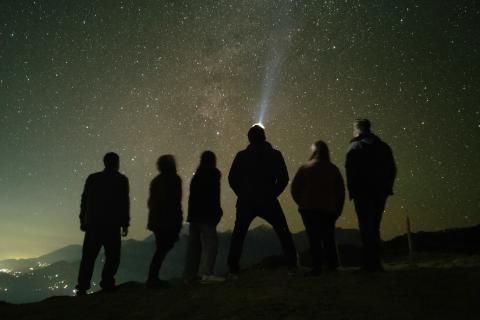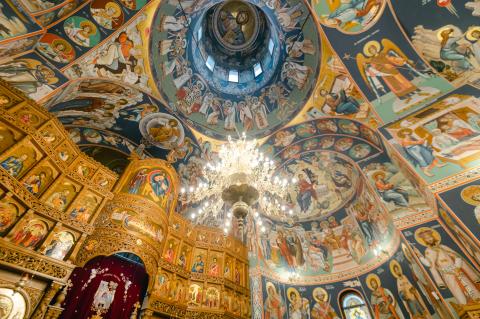
A recent New York Times article by Ross Douthat took stock of some of the ways the recent furor over several elite universities’ responses to Hamas’s massacre in Israel – or, to their more conservative supporters, their nonresponses – has revealed telling fault lines in the life of the contemporary university.
At issue is the long-developing trend toward “default progressivism” and the touting of diversity, equality, and inclusion “loyalty oaths in hiring.” Such trends have given rise to a somewhat confounding moral position: in order to welcome all viewpoints, such contemporary universities claim to support no particular viewpoint; by the same token, welcoming all viewpoints – the “D.E.I. loyalty oaths” Douthat points to – is lauded as a moral obligation.
There may not be much more time for such universities to occupy this strange moral space, however. Conservative donors have begun to withdraw their financial support of them (and Donald Trump has announced his plan to launch a public, online, emphatically “non-woke” university by taxing Harvard endowments). In the meantime, one left-leaning academic has suggested this should come as no surprise, given the brazenly politicized agenda of colleges like his: “How did anyone think we could get away with being nakedly ideological for years without any chickens coming home to roost?” he mused over social media. “Institutions have never been this transparently, officially political.”
If not this political, institutions have always been this moral. If there’s a point to be taken here, it’s perhaps not that universities ought to back off from their moral stance. Indeed, there’s a fallacy that often haunts cultures that prize political correctness: that a common life can be based in an atmosphere of moral relativism. But the truth is that every group of people that attempts any kind of unity always seeks, by an internal logic, some kind of moral unity – whether it’s by way of political correctness or Christian ethics. But no one can stand for nothing, even if they would like to appear to.
Douthat notes that conservative support is beginning to be redirected toward universities stripping down their humanities funding and reallocating it to STEM projects, or toward those heading in the opposite direction, establishing Great Books programs and curricula espousing more traditional values. Douthat hopes the latter option tips the scale. Perhaps the lesson to be learned, if it should do so, is that thriving institutional communities need to foster a moral tradition based in more than a posed neutrality about the truth of things. They need to be rooted in a metaphysical view of the world if they’re to form human persons who can dialogue and live meaningfully with one another, in pursuit of a shared ideal that is worthy and binding on how they speak, spend their time, have friendships, love. Otherwise, the humanities – or any educational effort that goes beyond the strictly utilitarian – risks becoming what STEM-devotees’ arguments suggest they are: frivolous, and not all that useful.
(Douthat’s article can be found here, behind a subscription wall.)
The Church in Ohio has called for a conversion of hearts after voters enshrined abortion into the state’s constitution.
In Mexico, healthcare professionals are pushing back against legislation that would remove rights of conscientious objection. In modern debate, much is made of the autonomy of patients – but what of the autonomy of healthcare professionals?
Pope Francis was in communication in Iran this week, amidst many such calls between international leaders seeking to ensure continuing access humanitarian aid for those suffering in the Holy Land.
Eucharist processions on public university campuses – such as Arizona State University – startle, mystify, and intrigue many onlookers. Read more about the impact some Catholic Newman Centers have had on their campuses through the longstanding practice of Eucharistic processions.
Contrary to popular belief, the Catholic Church has no quarrel with – and has never condemned – the theory of evolution.
In Rome, it is the Archbasilica of Saint John Lateran – rather than Saint Peter’s Basilica – that is the “Mother Church” of the entire Catholic world. One year from today, this church will celebrate its 1,700th birthday. Learn more about its ancient and storied past.


